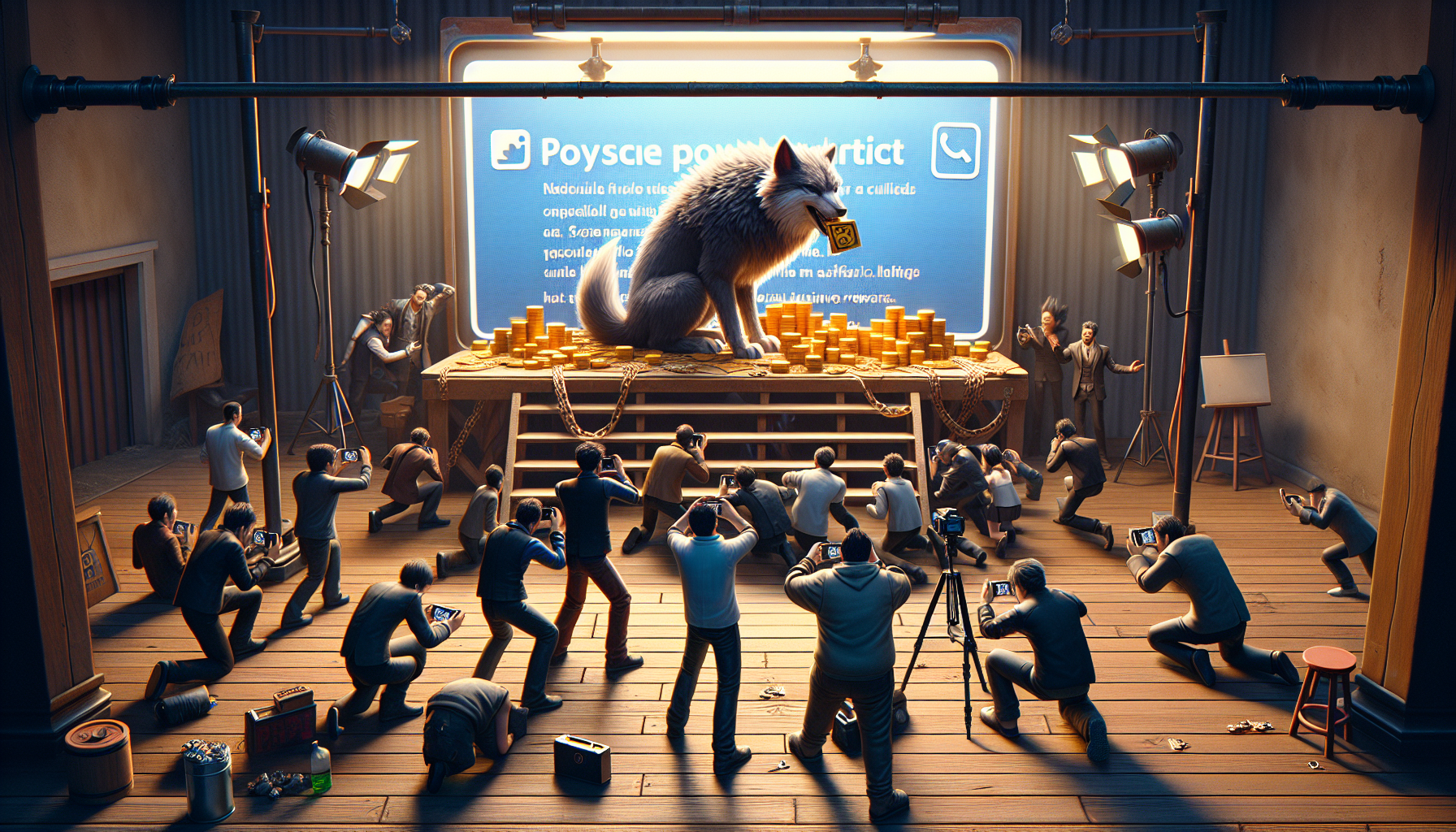The phenomenon of “NPC controllers” on TikTok
In the infinite universe of TikTok, a rather singular phenomenon has captured the attention of users: “ NPC controllers » (Non-Player Characters). Previously confined to video games, the expression “NPC” is now creeping into social media jargon, defining an experience that mixes augmented reality and social interaction. But what is really behind this craze for controlling NPCs on TikTok, and why does it arouse both fascination and debate?
The concept of NPC on Tiktok
Originally, an NPC is a character controlled by the program of a video game, which serves to provide interaction, quests or services to the player. When we transpose this concept into the social sphere of TikTok, an “NPC controller” refers to a person who engages in suggestive behavior that invites others to react in a certain way, as if they were scripted or predictable, like game characters.
The birth of a viral trend…strange
This trend of NPCs on TikTok grew, content creators began to share videos where they programmed certain types of reactions, often suggestive, provocative, in exchange for donations and gifts on their TikTok lives. By influencing spectators with subtle gestures or keywords.
Psychology and manipulation: Innocent play or dubious practice?
The most controversial aspect of the phenomenon involves the potential manipulation of unsuspecting people. Although some videos remain clearly harmless and humorous, this trend raises ethical questions about the line between entertainment and respect for the will of others. Don’t they treat their spectators like wallets on legs who are there only to spit out a maximum, all while exploiting emotional social poverty?
A fascination with social control
This phenomenon reflects a fascination with social influence and control. The “NPC controllers” on TikTok reignite the debate about the impact of social media on our free will and the way in which we can be “programmed” by trends and mass behaviors.
Behaving like an NPC: the consequences

In the world of video games, an NPC (Non-Player Character) is a character controlled by the system, acting according to predefined scripts, without free will or consciousness. But what happens when this notion extends beyond screens, into everyday human behavior?
What does it mean to behave like an NPC?
Behave like one NPC involves following daily and social routines without adding critical thought or personal touch. This may suggest restricted individualism, where decisions and actions are heavily influenced, or even dictated, by conventions or external authorities. The comparison with a NPC highlights a lack of authenticity or originality in a person’s behavior.
Psychological impact of adopting NPC behaviors
Psychologically, living like a NPC can lead to feelings of alienation and a lack of personal commitment. Repetition of routines without active engagement can decrease mental stimulation and increase feelings of emptiness and dissatisfaction. There is also a risk of weakening social and self-reflection skills, skills essential for personal development.
Social consequences of NPC behavior
On a social level, this type of behavior can result in superficial relationship dynamics. Lack of initiative or self-expression hinders the creation of deep, meaningful relationships, and this can lead to social isolation. Furthermore, strictly conforming to social expectations without questioning can perpetuate harmful norms and stereotypes.
How to escape the NPC mentality
The escape from the mentality of NPC is autonomy, creativity and critical thinking. Engaging in activities that nurture critical thinking, empathy, and self-expression is vital. Practices such as meditation, the arts, writing, or even civic engagement, encourage individuals to be fully active in their lives and to enrich their social experience.
Role of media and technology
Modern media and technologies, such as social networks, often amplify behavior of NPC. They emphasize uniform patterns of success and superficial interactions, which can encourage conformity without introspection. However, they can also serve as platforms for awareness and personal development, provided they are used thoughtfully and critically.
Adopt behavioral traits of NPC in real life can have profound negative impacts on mental health and social relationships. Recognizing and moving away from these patterns requires introspection and boldness to build an authentic and fulfilling life journey. It is essential to remain aware of these dynamics to live fully and enrich the communities in which we operate.

Leave a Reply